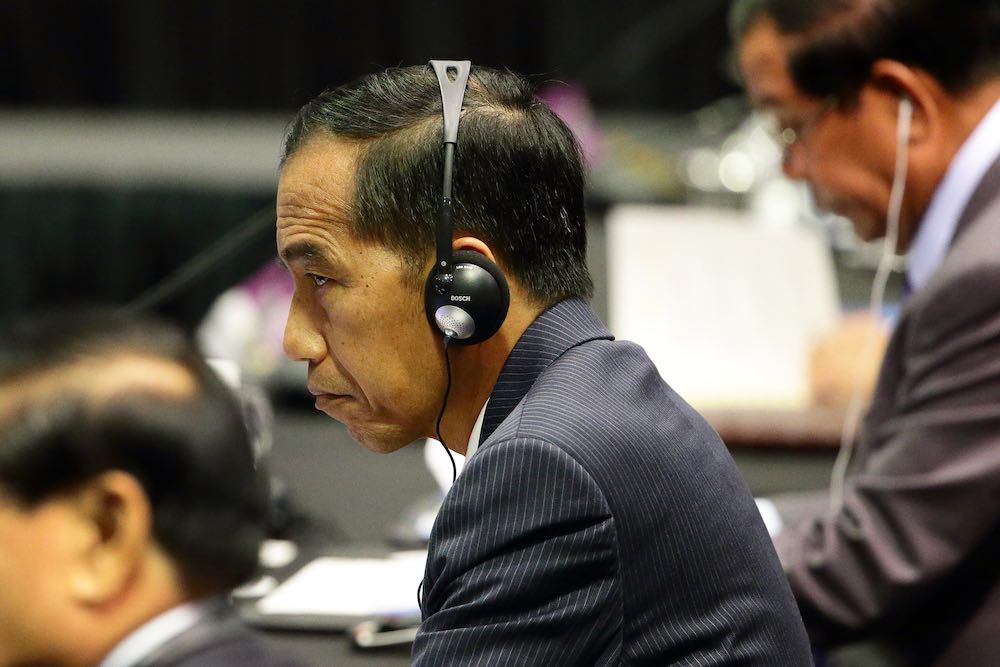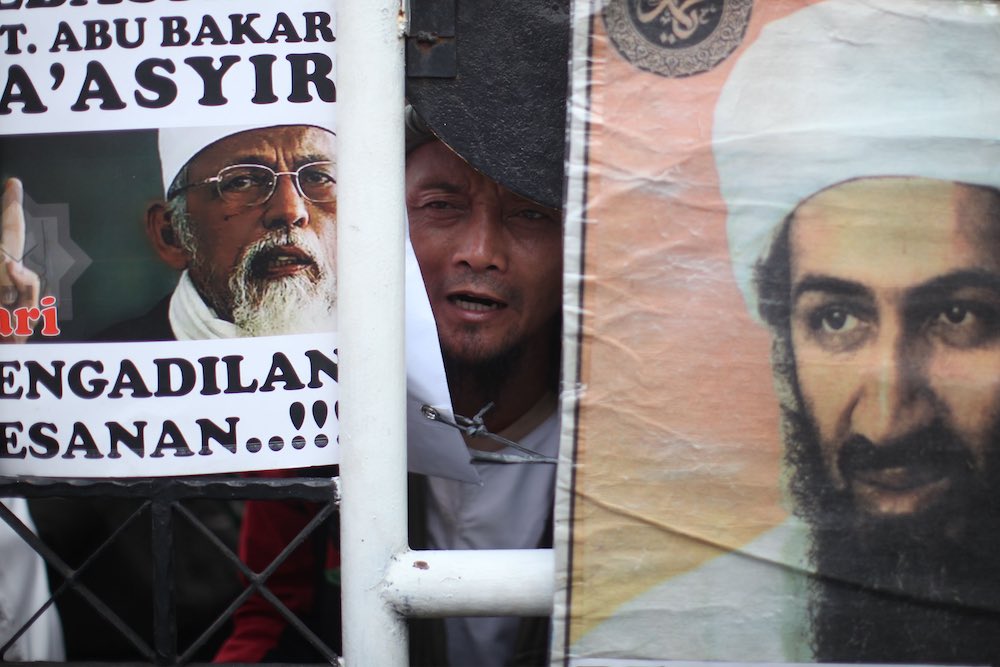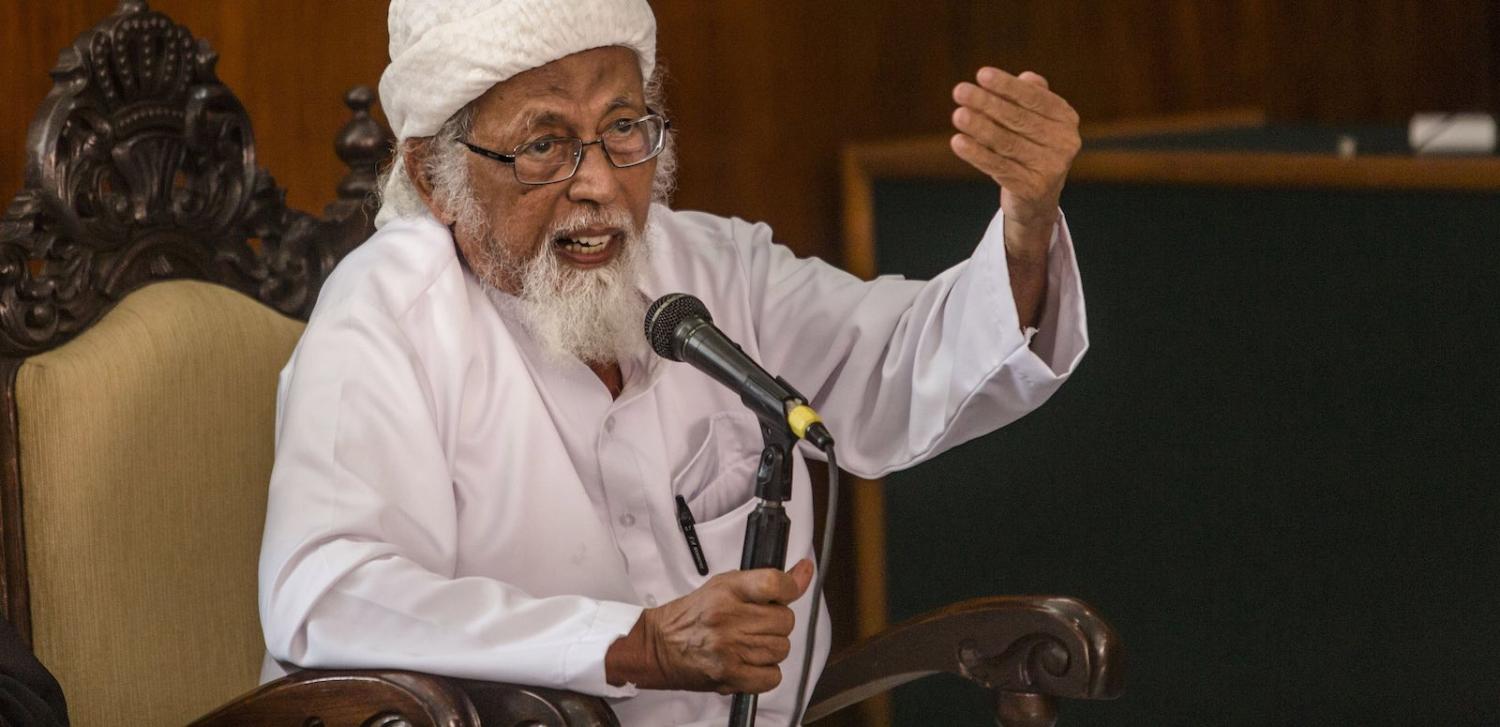President Joko (Jokowi) Widodo’s decision to release Abu Bakar Ba’asyir is misguided, legally questionable, and politically inept.
It sends the message that if one defies the state long enough, it will eventually capitulate. It emboldens those who see democracy as incompatible with Islam because that’s what Ba’asyir has been arguing all his life. It gives jihadists back their hero, his status elevated still more by apparently winning his freedom without having to accept Pancasila, the state ideology, or pledge loyalty to the Indonesian state.
Why did Jokowi choose to act now, when it was inevitable that he would be accused of trying to score political points?
It makes the president seem either Machiavellian enough to do anything in exchange for a few votes, or so politically deaf and blind that he had no idea of the consequences. It suggests that he reserves his compassion for one high-profile extremist who happens to be old, rather than for other prisoners who are critically ill, victims of mob persecution, or simply too poor to pay off corrupt courts.
All this said, the release – if it goes ahead, as opposition seemed to be rapidly building on Monday within Jokowi’s own camp – is unlikely to suddenly increase the risk of terrorism in Indonesia. It also does not signal any reduction in Indonesia’s counter-terrorism efforts. Detachment 88, which leads that effort, was as startled by the decision as everyone else and some of its officers are deeply unhappy about the release of a man widely regarded as a leading ideologue of violent extremism in Indonesia.
But it is so wrong on so many grounds that one can only wonder where Jokowi is getting his advice.

- The release may not increase the risk of attacks but it will certainly allow Ba’asyir to preach the virtues of jihad and endorse violence by others. His lawyers say he will be under no restrictions, and the man has lost none of his mental faculties or speaking ability. Even if he just sits at home, which is unlikely, he will have streams of well-wishers – including as many as three generations of extremists – coming to pay their respects and ample opportunity to encourage their militancy.
Why wasn’t he moved to house arrest if he was too infirm to stay in prison? He could have been under constant guard, with restrictions on speech and travel. This way, the police will have their hands full trying to monitor his house.
One question, however, is whether the president’s decision is also tantamount to immunity from further prosecution or whether Ba’asyir could still be arrested under the new counter-terrorism law, passed in May 2018, for ongoing support of violent extremism. It remains unclear whether he still backs Islamic State, despite his pledging allegiance to its leader, Abu Bakr al-Baghdadi, in 2014.
Ba’asyir has always supported lying in the interests of a greater goal and has backtracked on previous statements so frequently that it is impossible to know where he really stands.
Supporters hold signs as the cleric Ba’asyir is sentenced in 2011 at South Jakarta District Court (Photo: Dimas Ardian/Getty) - The legal grounds of the president’s decision are murky. It is clearly not a pardon, because Ba’asyir never requested a pardon. It is not an amnesty. It would seem to violate Regulation 99 of 2012 from the Ministry of Law and Human Rights, which makes the early release for certain categories of offenders, including convicted terrorists, contingent on their willingness to sign a written loyalty oath to the Indonesian government.
Ba’asyir’s lawyers have argued that because this is a regulation and not a law, it can be overridden by a presidential decision to intervene on humanitarian grounds.
But why should a requirement of loyalty to the Indonesian state be waived for humanitarian reasons? It makes no sense.
- The timing is peculiar, to say the least. If Jokowi and his advisers did not want to generate speculation that this was all being done for political reasons, to appeal to Islamist conservatives ahead of the April 2019 presidential election, why act now? Ba’asyir’s health was the same as it is now a year ago when Jokowi ignored petitions for his release.
Why did he choose to act now, when it was inevitable that he would be accused of trying to score political points or to buffer the impact of the release this week of Ahok, the Christian governor of Jakarta whom the Islamist right brought down? He could easily have waited a few months.
As it is, the Islamists, while happy to see Ba’asyir free, are dismissing Jokowi’s move as a cheap political ploy. It will earn him no votes from that camp and may lose him a few among the more open-minded.
The end result is that Jokowi ends up looking weak, out-manoeuvred and poorly advised. Not a good image as the presidential election campaign heats up.

